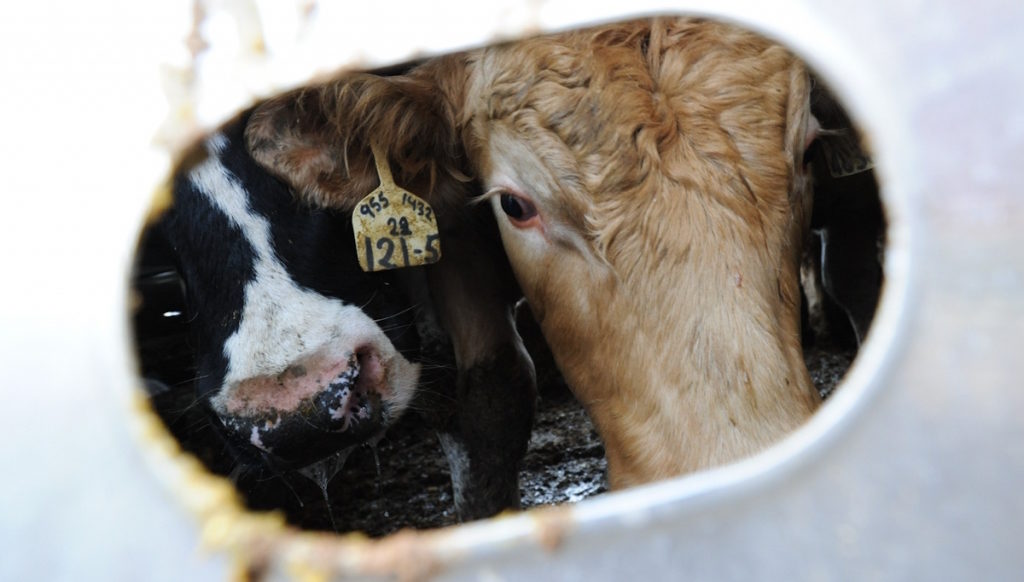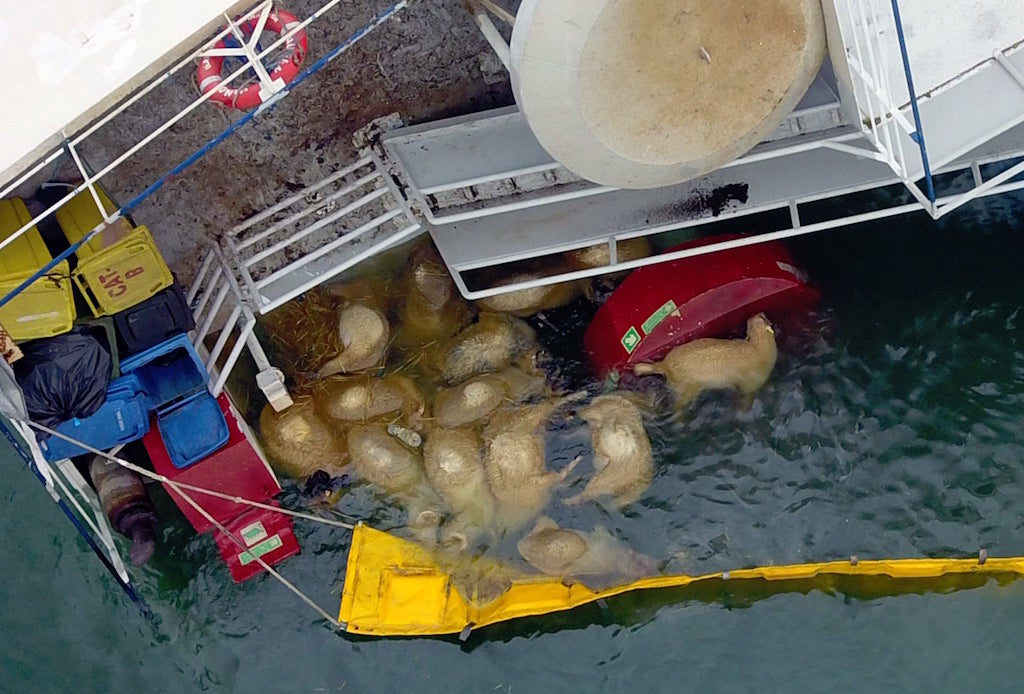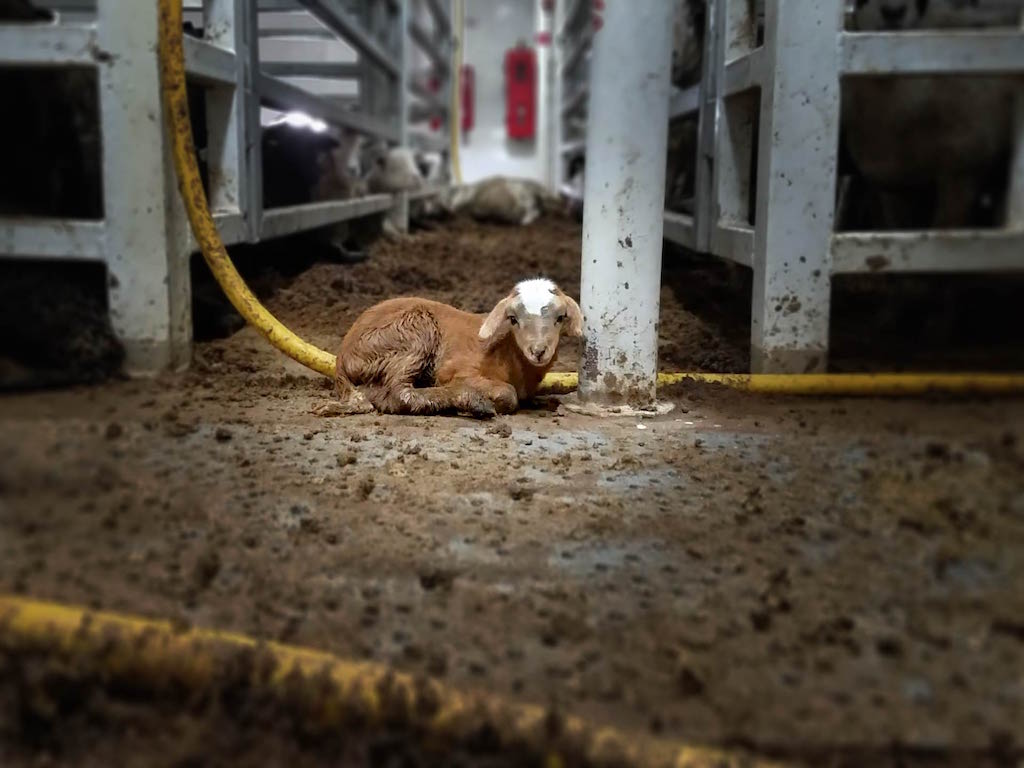4 Mins Read
According to a damning new report by the Guardian, the lack of regulation to oversee the booming global live animal trade industry is exposing the 5 million animals in transit every day to cruelty and putting them at risk. Every year, 2 billion farm animals are loaded onto trucks or ships and sent to new countries on journeys that span weeks. As the global demand for meat continues to grow, the number of animals being threatened with poor conditions and inhumane slaughter will skyrocket.
Around 2 billion farm animals are loaded onto trucks and ships to be sent to new countries every year, and 5 million animals are in transit every single day. As the trade in live animals has grown, driven by the global obsession with consuming meat, more and more animals are being put at risk of terrible conditions during the journey and inhumane slaughter upon arriving at their destination.
The rising demand for meat across the world has meant that exporters who specialise in breeding livestock and fattening them before slaughter have benefited greatly. In the Middle East, for example, animal imports have skyrocketed with Saudi Arabia importing nearly US$1 billion worth of live animals in 2016 alone. Meanwhile, exporter countries have thrived from the demand, such as Romania, who sends 2 million sheep a year to destinations all over the world.

However, the growing trade has not been matched with the appropriate regulations to oversee animals in transit. While there is an international body responsible for setting up rules and standards for public and animal health, the World Organisation for Animal Health (OIE), but their capacity does not extend to ensuring that the standards are adhered to and it instead resides with individual governments.
According to animal rights charities, poor conditions during transportation, inhumane slaughter on arrival and the spread of disease are among some of the key problems that the trade is responsible for. Campaigners from NGO Eyes on Animals have highlighted how animals have been left at ports in hot vehicles, do not have access to a vet during week-long journeys, and are subject to abusive practices such as cutting tendons in cows’ legs to stop it moving prior to slaughter. In the Guardian’s own investigation, vessels licensed to carry animals are often dilapidated, which has led to the capsize and drowning of more than 14,600 sheep in November last year.
“Our members have not given us the mandate to enforce compliance with our international standards – that remains the sovereign responsibility of each member country,” said Dr Matthew Stone, deputy director-general of the OIE, in a conversation with the Guardian.

Some individual governments do have checks in place to monitor the treatment of animals in transit and arrival. The European Union, for instance, has set up rules stipulating that exporters must be confident that the same animal welfare standards are met beyond the border. However, there has been criticism over the efficacy of such rules, as this is in practice still difficult to ensure. Lobbying group Eurogroup for Animals argue that a total ban on live exports and limits on journey times within countries is necessary.
Although updating regulations can help to start chipping away at cruel and inhumane practices associated with the live trade of animals, the most effective action that we can each take is to reduce consumption of meat products altogether, which is currently propping up the global industry. According to PETA, every individual who chooses to ditch meat and dairy products saves almost 200 animal lives each year.
In addition to animal welfare concerns, choosing not to consume meat and dairy products comes with environmental and health benefits. The United Nations FAO and reputable scientific reports have repeatedly highlighted the hefty footprint of animal agriculture, which is responsible for 18% of global greenhouse gases, as well as huge resource wastage and pollution. In a study by Oxford University, researchers found that consuming a more plant-centric diet also corresponds to better health, and a reduced risk of heart disease and various cancers.
Read: You’ve probably eaten shark meat & other shocking facts you need to know
Moreover, the trade of live animals has been associated with serious public health risks. The current outbreak and rapid spread of the Chinese coronavirus originating from Wuhan, which has already killed multiple people and infected hundreds all over the world, has been traced back to a seafood market in Wuhan city that illegally sells wild game animals. While the exact epidemiology of the coronavirus is still unclear, some experts believe that it is linked to contact with the illegal live wild animal trade, including rats, wolves, civet cats and deer.
Lead image courtesy of Animals Australia.




